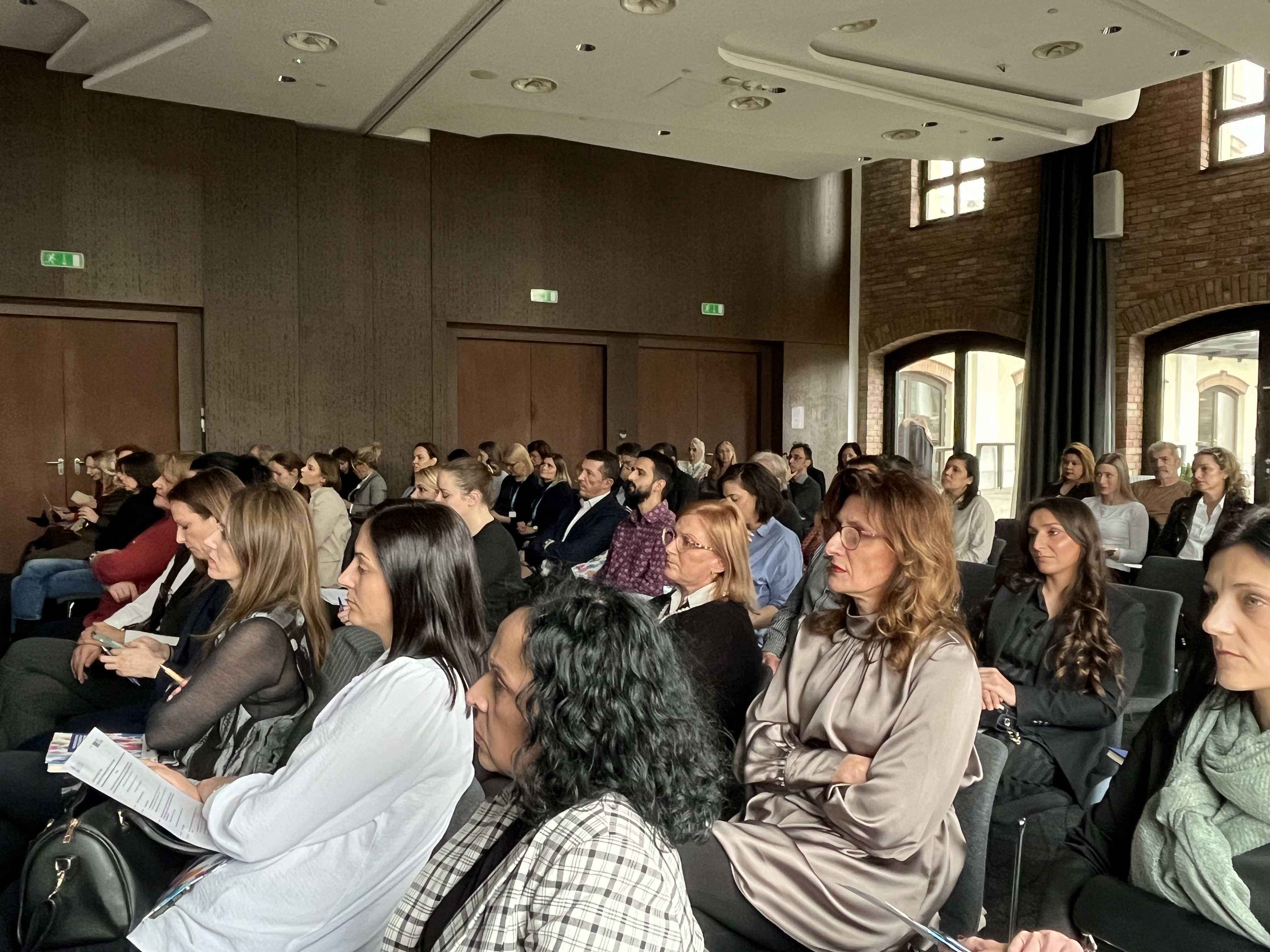Local social care services: Key to better quality of life and community well-being in Serbia
March 4, 2024
Presentation of key findings of the study “Mapping Social Care Services and Material Support within the Mandate of Local Self-Governments in the Republic of Serbia 2021”, followed by the round table “Improving the social welfare system at the local level” held in Belgrade.
Belgrade, 29 February 2024 - Social care services are necessary to provide support, especially for the most vulnerable social groups and ensure their active participation in the society. As services need to be tailored to individual needs, strengthening local capacities is one of the key steps towards achieving decentralisation, better access and increased social inclusion.

To share knowledge, expertise and showcase the current situation in Serbia, the main findings of the study “Mapping Social Care Services and Material Support within the Mandate of Local Self-Governments in the Republic of Serbia 2021”, by authors Gordana Matković, Žarko Šunderić and Lazar Muždalo were presented at the event organised within the “European Union Support to Social Housing and Active Inclusion” (EU SHAI) Programme.
The study is conducted every three years, since 2012, while the newest issue that is a part of the fourth cycle, was an initiative of the Ministry of Labour, Employment, Veterans and Social Affairs, within the framework of the EU SHAI Programme.

The findings of the study showed that social protection services at the local level are insufficiently developed and unevenly available, as well as that most municipalities and cities in Serbia provide two to three services, while the most common are: help at home for the adults and elderly, personal assistance for children and day care for children and young people with developmental disabilities.
The presentation was followed by the round table where the representatives from national and local levels, development partners, civil society organisations and UNOPS, discussed the existing challenges, but also the ways and measures for the improvement of the social welfare system at the local level.
The main recommendations and conclusions of the study include:
1) Establishment of the regular reporting system;
2) Building capacities for data collection and local monitoring and evaluation of services;
3) Allocation of larger funds for dedicated transfers;
4) Pre-definition of criteria for the allocation of dedicated transfers and improvement of monitoring and control;
5) Extension of the single Social Card register;
6) Further improvement and development of indicators, and;
7) Changes in legal solutions.

The event gathered more than 60 participants, from social welfare sector, national and local institutions, local self-governments, civil society organisations, donor representatives and other service providers, and provided key insights about current situation in the area of social welfare and opened important questions about ways for improving social care services at a local level.
Photos: UNOPS Serbia/Sara Pašić


